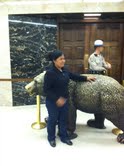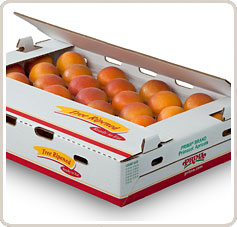Labor unions are bad for workers and employers. But sometimes the good guys prevail.
The lawsuit filed by a Fresno farmworker against members of the Agricultural Labor Relations Board alleging civil rights violations will move forward to trial, a federal judge just ruled last week.
In February of this year, Gerawan Farming worker Silvia Lopez sued the gubernatorial appointees and regional staff of the ALRB alleging that their refusal to count the Gerawan farmworkers’ decertification votes violated her 1st and 14th Amendment rights.
The Agricultural Labor Relations Board says it exists to protect the rights of all agricultural employees, including those not wanting labor organization representation, as is the case with Gerawan Farming employees. However, Gerawan farming employees say they have not received any assistance from the ALRB.
Whenever they can, labor unions historically try to gain control over entry into the labor market. “Such measures are for the purpose of holding down the supply of labor in the field and thereby enabling those fortunate enough to be admitted to it, to earn higher incomes,” wrote George Reisman of the Ludwig von Mises Institute.
Wages throughout the economic system rise only from the side of a greater supply of goods and services relative to the supply of labor and thus from prices being lower relative to wages, Reisman explained.
Free-market economics is not about dividing up a dwindling pie, but expanding the pie to serve everyone. Those who succeed do not do so at the expense of others. – The Heritage Foundation
If at first you don’t succeed, sue
Ms. Lopez sued the ALRB in February. Almost immediately, the ALRB general counsel filed a motion to dismiss the lawsuit. In the decision handed down last week, U.S. District Court Judge Lawrence O’Neill ruled that Lopez’s allegations of violations against her 1st Amendment rights of association will move forward.
The UFW and ALRB claim the Gerawan farm workers are being intimidated and coerced by their employer. But nothing could be further from the truth. The fight against the UFW was completely organized by Silvia Lopez, and thousands of Gerawan employees. And they’ve made their issues quite clear — they don’t want UFW union dues taken out of their paychecks, and they don’t want the union to interfere with the excellent working relationship they have with their employer.
It is the Gerawan employees who collected signatures and demanded the ALRB hold a decertification election. Despite Lopez’s plight on behalf of the farmworkers for two years, the Legislature and the governor have been silent. “We don’t want the union — we want the right to vote,” Lopez told me last October. “We want to be heard!”
“I am happy that I will get to face the members of the ALRB and regional director at a trial,” Lopez said in a statement following the decision. “My co-workers’ and my rights have been denied for more than 280 days. It’s not right.”
“I’m glad that the judge saw that I have a real case and will let part of my lawsuit move forward,” said Lopez, one of thousands of Gerawan farmworkers fighting to get rid of the United Farm Workers union. “All the farmworkers want is to have our votes counted. We will not stop fighting to have our voices heard and our rights protected.”
Why labor unions are anti-labor
“The increase in money wages that labor unions seek is not at all the source of rising real wages and that the source of rising real wages is in fact a rising productivity of labor, which always operates from the side of falling prices, not rising money wages,” Reisman explained.
The United Farm Workers wormed its way into Gerawan Farming in 1990 when the labor union won an election to organize Gerawan workers – with barely more than 500 votes. But after holding one bargaining session, the union lost interest and never sealed the deal with a contract.
In October 2012, the UFW labor union, desperate for new members, reappeared out of the blue after doing nothing since 1990, to impose a union contract on Gerawan Farming and its 5,000 employees, requiring the workers to pay 3 percent of their wages in union dues. The UFW even threatened to fire workers who refused to enter into the agreement.
This incited the workers, who describe their working conditions as optimum. Gerawan farming pays high wages and benefits, including retirement, vacation pay and even the tuition for the workers’ children at the local Catholic St. La Salle School.
In the 1970s the United Farm Workers labor union was thriving with about 50,000 members. However, over the years, membership has dwindled to about 3,300. Prior to hitting up Gerawan Farming in 2012, the UFW was desperate for more income, having overspent its budget by more than $1 million. Targeting Gerawan’s 5,000 employees was clearly the easiest way to get an infusion of easy money.
But the UFW never counted on workers like Silvia Lopez, and the thousands of Gerawan employees who like their employer.
Reisman sums it up best:
“All of these destructive, antisocial consequences derive from the fact that while individuals increase the money they earn through increasing production and the overall supply of goods and services, thereby reducing prices and raising real wages throughout the economic system, labor unions increase the money paid to their members by exactly the opposite means. They reduce the supply and productivity of labor and so reduce the supply and raise the prices of the goods and services their members help to produce, thereby reducing real wages throughout the economic system.”
Reisman is right. Gerawan Farming Company is living proof of a successful free market arrangement where everyone gets what they need. A UFW takeover at this point would serve to swindle the workers out of pay and benefits, and shakedown the employer.



